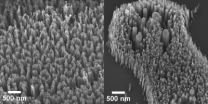WASHINGTON, DC, March 18, 2011 (Press-News.org) The Financial Express published an article on the Free Trade Agreement (FTA) talks that continue between the European Union (EU) and India. One of the most discussed and disagreed upon parts of the proposed FTA involves the need for protecting the intellectual property of pharmaceutical companies in order to promote medical innovation and investment in the development of new medicines and research. This disagreement about whether data exclusivity in the pharmaceutical sector should be included has resulted in the delay of finalizing the FTA.
Pharmaceutical companies rely on data exclusivity to protect the investment made in developing the medication that is used throughout the world. Millions of dollars are spent on clinical trials to prove the safety and effectiveness of these drugs. These exclusive rights prevent competitors from obtaining marketing licenses for lower cost versions of these drugs.
Global Health Progress (GHP) is committed to being part of the effort to create a sustainable health care system that includes improving access to health care and continuing medical innovation and progress for all people. While the pharma industry is divided on the issue, GHP supports efforts to improve regulations protecting pharmaceutical companies' intellectual property. Without this protection, the funding of studies that bring these medications to market could suffer.
Improving health care systems and access to medicines, especially in the developing world, requires multifaceted approaches and solutions. Research-based biopharmaceutical companies are active partners in some of the largest and boldest health initiatives that explore new and effective ways to provide treatment, care and education to millions of people in developing countries.
About Global Health Progress:
Global Health Progress also supports efforts to raise awareness and mobilize resources to address health challenges in the developing world by bringing local leaders together with international health experts, policymakers, donor governments, and the private sector. www.globalhealthprogress.org, http://twitter.com/globalhealth, www.facebook.com/pages/Global-Health-Progress/124850684219049, www.linkedin.com/groups?home=&gid=2972068
To stay informed on the latest news about global investment in pharmaceutical R&D and improving access to medicines, sign up to receive special alerts and newsletters. You can also spread the word about the efforts of the Global Health Progress initiative and keep others informed about how we're affecting change around the world or share your story about how you or someone you know is working to promote global health.
Medical Innovation Protection Stressed in EU-India Free Trade Agreement Talks
Global Health Progress highlights the need for intellectual property to protect medical innovation and research.
2011-03-18
ELSE PRESS RELEASES FROM THIS DATE:
Chemical-free pest management cuts rice waste
2011-03-18
In 2006, Maria Otilia Carvalho, a researcher from the Tropical Research Institute of Portugal had an ambitious goal: to cut the huge losses of rice – a staple food crop for half of humanity – due to pests, without using toxic pesticides that are increasingly shunned by consumers worldwide. She realised she could not do it alone and turned to EUREKA to support an international collaboration to address a looming threat to world's rice supplies. Harvested rice is constantly under menace from pest insects and fungi - to avoid the pests, farmers and producers treat the rice ...
Psychological impact of Japan disaster will be felt 'for some time to come'
2011-03-18
The psychological impact of natural disasters such as the Japan earthquake can be revealed in the way people inherently respond to unpredictable situations, according to a psychology expert at Queen Mary, University of London.
Dr Magda Osman, Psychology Lecturer at Queen Mary, University of London, and author of Controlling Uncertainty: Decision-making and Learning in Complex Worlds, said the disaster had a devastating immediate effect on tens of thousands of people in Japan but the true psychological impact will be felt "for some time to come".
"A disaster like the ...
New plant species gives insights into evolution
2011-03-18
A new plant species is providing an insight into how evolution works and could help improve crop plants, scientists have revealed.
The new plant species, Tragopogon miscellus, appeared in the United States 80 years ago. It came about when two species in the daisy family, introduced from Europe, mated to produce a hybrid offspring.
The species had mated before in Europe, but the hybrids were never successful. However in America something new happened. The number of chromosomes in the hybrid spontaneously doubled, and at once it became larger than its parents and quickly ...
eMaint Enterprises Joins Forces with the Reliability Performance Institute to Sponsor the CMMS-2011 CMMS, April 11-13, 2011
2011-03-18
eMaint Enterprises, headquartered in Marlton, New Jersey has provided maintenance management software solutions since 1986. Dedicated to successful CMMS implementation, eMaint is pleased to be a contributing sponsor of the CMMS-2011 Computerized Maintenance Management Summit, a learning and networking event designed for those seeking to implement a new CMMS/EAM or reimplement an existing CMMS/EAM for more effective maintenance management and decision support. The Summit will take place at the Reliability Performance Institute in Fort Myers, Florida on April 11 - 13, 2011.
eMaint's ...
Labor reforms of past 30 years have hit young people hardest
2011-03-18
A study by the Complutense University of Madrid (UCM), analysing the impact of the labour reforms introduced over the past 30 years and the living conditions of new generations, asserts that these reforms have been the origin and cause of the current development model based on the exploitation of young people.
"The study indicates that the Spanish economic development model over the past three decades – with high rates of economic growth and job creation – is based on the 'over-exploitation of the youngest generations of workers'", Pablo López Calle, author of the paper, ...
Human prejudice has ancient evolutionary roots
2011-03-18
The tendency to perceive others as "us versus them" isn't exclusively human but appears to be shared by our primate cousins, a new study led by Yale researchers has found.
In a series of ingenious experiments, Yale researchers led by psychologist Laurie Santos showed that monkeys treat individuals from outside their groups with the same suspicion and dislike as their human cousins tend to treat outsiders, suggesting that the roots of human intergroup conflict may be evolutionarily quite ancient.
The findings are reported in the March issue of the Journal of Personality ...
Study finds more efficient means of creating, arranging carbon nanofibers
2011-03-18
Carbon nanofibers hold promise for technologies ranging from medical imaging devices to precise scientific measurement tools, but the time and expense associated with uniformly creating nanofibers of the correct size has been an obstacle – until now. A new study from North Carolina State University demonstrates an improved method for creating carbon nanofibers of specific sizes, as well as explaining the science behind the method.
"Carbon nanofibers have a host of potential applications, but their utility is affected by their diameter – and controlling the diameter of ...
Badbeat.com Donates Revenue Percentage to Support UK's Red Nose Day
2011-03-18
Badbeat.com, the original and leading online poker staking business, will be donating 10% of ALL affiliate revenue generated by the Badbeat players on Friday 18th March to Comic Relief in support of Red Nose Day.
The Badbeat management has urged their players to help change lives both in the UK and across Africa, challenging them to raise as much money as possible playing poker day and night!
"Red Nose Day is a day like no other; when the whole country gets together to help change countless lives," said Badbeat Managing Director, John Conroy. "We're incredibly happy ...
Study provides new tool to monitor coral reef 'vital signs'
2011-03-18
MIAMI – March 17, 2010 -- University of Miami (UM) Rosenstiel School of Marine & Atmospheric Science scientist Chris Langdon and colleagues developed a new tool to monitor coral reef vital signs. By accurately measuring their biological pulse, scientists can better assess how climate change and other ecological threats impact coral reef health worldwide.
During a March 2009 experiment at Cayo Enrique Reef in Puerto Rico, the team tested two new methods to monitor biological productivity. They compared a technique that measures changes in dissolved oxygen within ...
Johns Hopkins team creates stem cells from schizophrenia patients
2011-03-18
Using skin cells from adult siblings with schizophrenia and a genetic mutation linked to major mental illnesses, Johns Hopkins researchers have created induced pluripotent stem cells (iPS cells) using a new and improved "clean" technique.
Reporting online February 22 in Molecular Psychiatry, the team confirms the establishment of two new lines of iPS cells with mutations in the gene named Disrupted In Schizophrenia 1, or DISC1. They made the cells using a nonviral "epiosomal vector" that jumpstarts the reprogramming machinery of cells without modifying their original ...
LAST 30 PRESS RELEASES:
New knowledge on heritability paves the way for better treatment of people with chronic inflammatory bowel disease
Under the Lens: Microbiologists Nicola Holden and Gil Domingue weigh in on the raw milk debate
Science reveals why you can’t resist a snack – even when you’re full
Kidney cancer study finds belzutifan plus pembrolizumab post-surgery helps patients at high risk for relapse stay cancer-free longer
Alkali cation effects in electrochemical carbon dioxide reduction
Test platforms for charging wireless cars now fit on a bench
$3 million NIH grant funds national study of Medicare Advantage’s benefit expansion into social supports
Amplified Sciences achieves CAP accreditation for cutting-edge diagnostic lab
Fred Hutch announces 12 recipients of the annual Harold M. Weintraub Graduate Student Award
Native forest litter helps rebuild soil life in post-mining landscapes
Mountain soils in arid regions may emit more greenhouse gas as climate shifts, new study finds
Pairing biochar with other soil amendments could unlock stronger gains in soil health
Why do we get a skip in our step when we’re happy? Thank dopamine
UC Irvine scientists uncover cellular mechanism behind muscle repair
Platform to map living brain noninvasively takes next big step
Stress-testing the Cascadia Subduction Zone reveals variability that could impact how earthquakes spread
We may be underestimating the true carbon cost of northern wildfires
Blood test predicts which bladder cancer patients may safely skip surgery
Kennesaw State's Vijay Anand honored as National Academy of Inventors Senior Member
Recovery from whaling reveals the role of age in Humpback reproduction
Can the canny tick help prevent disease like MS and cancer?
Newcomer children show lower rates of emergency department use for non‑urgent conditions, study finds
Cognitive and neuropsychiatric function in former American football players
From trash to climate tech: rubber gloves find new life as carbon capturers materials
A step towards needed treatments for hantaviruses in new molecular map
Boys are more motivated, while girls are more compassionate?
Study identifies opposing roles for IL6 and IL6R in long-term mortality
AI accurately spots medical disorder from privacy-conscious hand images
Transient Pauli blocking for broadband ultrafast optical switching
Political polarization can spur CO2 emissions, stymie climate action
[Press-News.org] Medical Innovation Protection Stressed in EU-India Free Trade Agreement TalksGlobal Health Progress highlights the need for intellectual property to protect medical innovation and research.




